#Germinal
Text
I was tagged by @acrazybayernfan to share 9 of my favorite books: I'm so sorry, i didn't see the tag till today *sigh* thank you for the tag 🩵 (et je pense relire La Quête du Saint-Graal, petit moment de nostalgie grâce à toi haha).

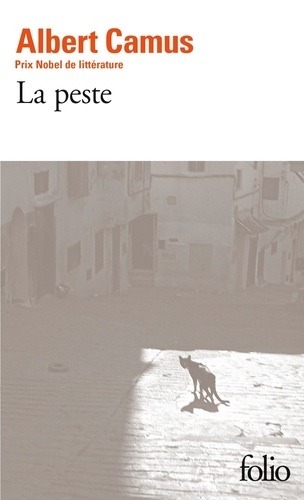
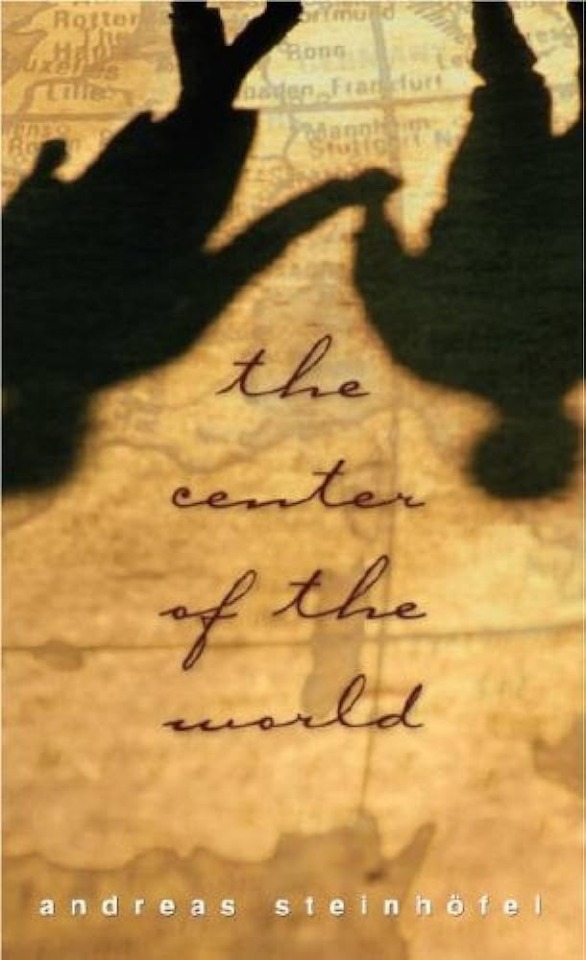

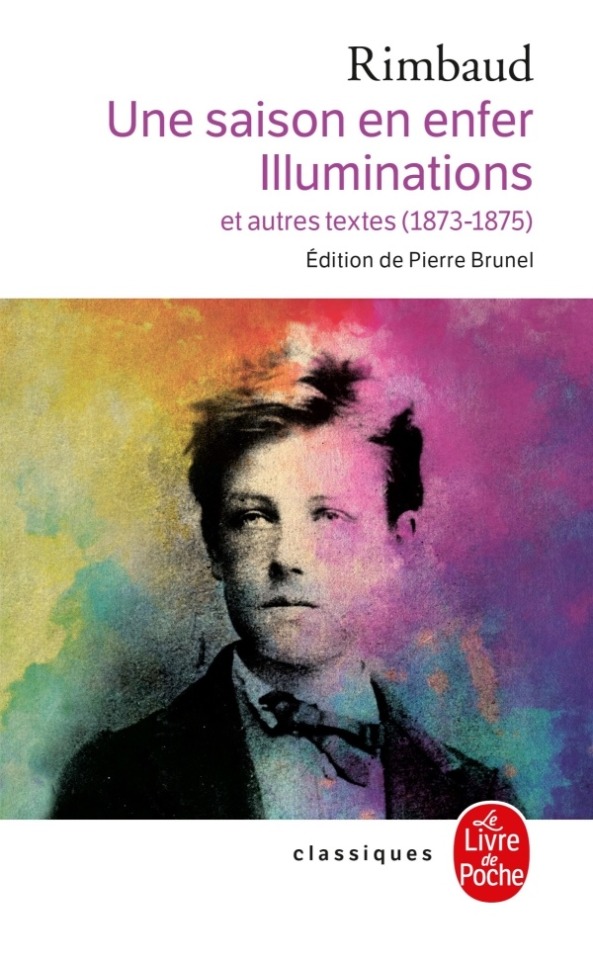



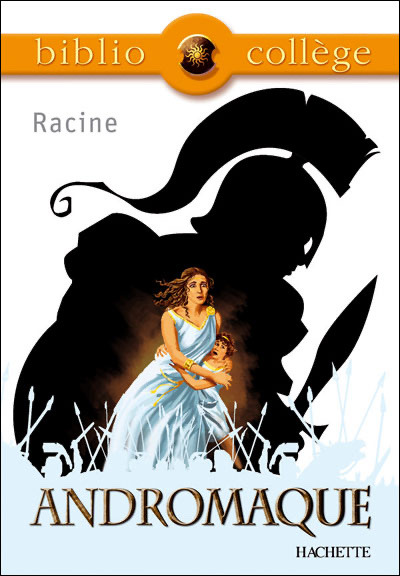
I wanted to add more like The Goblet of Fire or Peter Pan, it was so difficult to choose only 9 of them 😂
Tagging @ofbooksandstardustbook, @luzmyway, @game-set-canet, and whoever wants to do it ☺ (feel free to do it or not💜 )
#tag game#book game#all the light we cannot see#titanic#the center of my world#george mallory#une saison en enfer#arthur rimbaud#la peste#albert camus#the strange case of dr jekyll and mr hyde#robert louis stevenson#emile zola#germinal#andromaque
24 notes
·
View notes
Text
Round 1
This is my favorite book in all the world, though I have never read it.
-The Princess Bride, William Goldman
Over the open plain, beneath a starless sky as dark and thick as ink, a man walked alone along the highway from Marchiennes to Montsou, a straight paved road ten kilometres in length, intersecting the beetroot fields.
-Germinal, Emile Zola
In a hole in the ground lived a hobbit. Not a nasty, dirty, wet hole, filled with the rnds of worms and an oozy smell, nor yet a sandy, bare hole with nothing in it to sit down on or to eat: it was a hobbit hole, and that means comfort.
-The Hobbit, J.R.R. Tolkien
#polls#tournament poll#books#reading#round 1#the princess bride#william goldman#germinal#emile zola#the hobbit#jrr tolkien
60 notes
·
View notes
Text
She was as soft and gentle as silk, so tender he could almost eat her.
Germinal, Émile Zola, 1885
43 notes
·
View notes
Text
Primidi 1er Germinal an CCXXXII
(Mercredi 20 mars 2024 / Wenesday, March 20th 2024)
🇨🇵 Texte en français et en anglais / Text in French and English 🇬🇧/🇺🇲
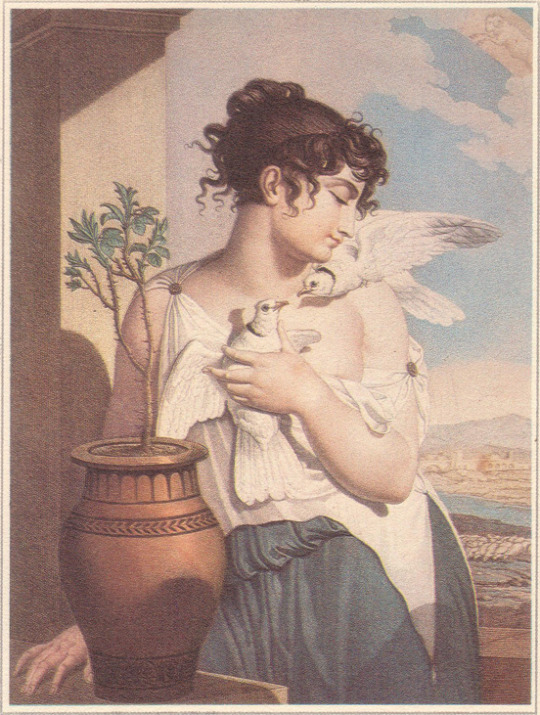

Le calendrier républicain, adopté pendant la Révolution française, était une tentative de rompre avec le passé monarchique et catholique en instaurant un système de mesure du temps basé sur les valeurs républicaines et agricoles. Chaque jour du calendrier républicain était dédié à une plante, un animal, un outil ou un événement symbolique, reflétant ainsi les idéaux de la Révolution.
Le mois de Germinal dans le calendrier républicain français représente le renouveau et la vitalité de la nature au printemps. Du 20 mars au 19 avril, Germinal est le mois où la terre se réveille de son sommeil hivernal, où les bourgeons éclosent et où les premières fleurs colorent les paysages. Il incarne le début de la saison des semailles et le travail de la terre, symbolisant ainsi l'espoir et la promesse d'une nouvelle récolte. Germinal rappelle également les idéaux républicains de liberté, d'égalité et de fraternité, en invitant chacun à contribuer à l'essor de la société et à cultiver un avenir meilleur.
Le 1er Germinal dans le calendrier républicain français, synonyme de printemps, est une journée dédiée à célébrer la beauté et la fraîcheur des primevères, ces magnifiques fleurs colorées qui annoncent l'arrivée des beaux jours.
Cette journée est l'occasion parfaite pour prendre conscience de la renaissance de la nature après les rigueurs de l'hiver. Les primevères, avec leurs pétales délicats et leurs couleurs vives, symbolisent cette période de renouveau et d'espoir.
À l'époque du calendrier républicain français, la journée du 1er Germinal, synonyme de printemps, était célébrée avec enthousiasme. Les citoyens se réunissaient dans les jardins publics et les parcs pour admirer les primevères en fleurs. Certains organisaient des expositions florales où les primevères étaient mises en valeur dans des arrangements artistiques.
En plus de leur beauté esthétique, les primevères ont également une importance écologique en tant que premières fleurs à fleurir au printemps, fournissant ainsi une source de nourriture essentielle pour les insectes pollinisateurs tels que les abeilles et les papillons.
En résumé, la journée du 1er Germinal est l'occasion idéale pour célébrer la beauté et la vitalité des primevères, tout en se reconnectant avec la nature et en appréciant les merveilles du printemps.
***
The Republican calendar, adopted during the French Revolution, was an attempt to break with the monarchical and Catholic past by establishing a system of time measurement based on republican and agricultural values. Each day of the Republican calendar was dedicated to a plant, an animal, a tool, or a symbolic event, thus reflecting the ideals of the Revolution.
The month of Germinal in the French Republican calendar represents the renewal and vitality of nature in spring. From March 20 to April 19, Germinal is the month when the earth awakens from its winter slumber, when buds open, and when the first flowers color the landscapes. It embodies the beginning of the sowing season and the work of the land, symbolizing hope and the promise of a new harvest. Germinal also recalls the republican ideals of liberty, equality, and fraternity, inviting everyone to contribute to the development of society and to cultivate a better future.
The 1st Germinal in the French Republican calendar, synonymous with spring, is a day dedicated to celebrating the beauty and freshness of primroses, these magnificent colorful flowers that herald the arrival of sunny days.
This day is the perfect opportunity to become aware of the rebirth of nature after the rigors of winter. Primroses, with their delicate petals and vibrant colors, symbolize this period of renewal and hope.
At the time of the French Republican calendar, the 1st Germinal, synonymous with spring, was celebrated with enthusiasm. Citizens gathered in public gardens and parks to admire the blooming primroses. Some organized floral exhibitions where primroses were showcased in artistic arrangements.
In addition to their aesthetic beauty, primroses also have ecological importance as the first flowers to bloom in spring, providing an essential food source for pollinating insects such as bees and butterflies.
In summary, the 1st Germinal is the ideal opportunity to celebrate the beauty and vitality of primroses, while reconnecting with nature and appreciating the wonders of spring.
#calendrier#calendrier républicain#calendrier républicain français#calendrier révolutionnaire#calendrier révolutionnaire français#france#français#révolution#plante#Germinal#nature#primeveres#révolution française#french#french republic#french revolution#french calendar#primrose#fleurs
16 notes
·
View notes
Text
Reading an overly sentimental poem about Germinal at the stanza poetry festival :-)
@reggiespoon @anotherhumaninthisworld @commiecamille @saltforsalt
#frev#camille desmoulins#dantonists#indulgents#germinal#if one can be sure any historical person would want you to read sentimental poetry about their violent death on a stage#surely it’s Camille ??#Lucile Desmoulins
23 notes
·
View notes
Text
Men were springing forth, a black avenging army, germinating slowly in the furrows, growing towards the harvests of the next century, and their germination would soon overturn the earth.
Émile Zola, Germinal (1885)
13 notes
·
View notes
Text
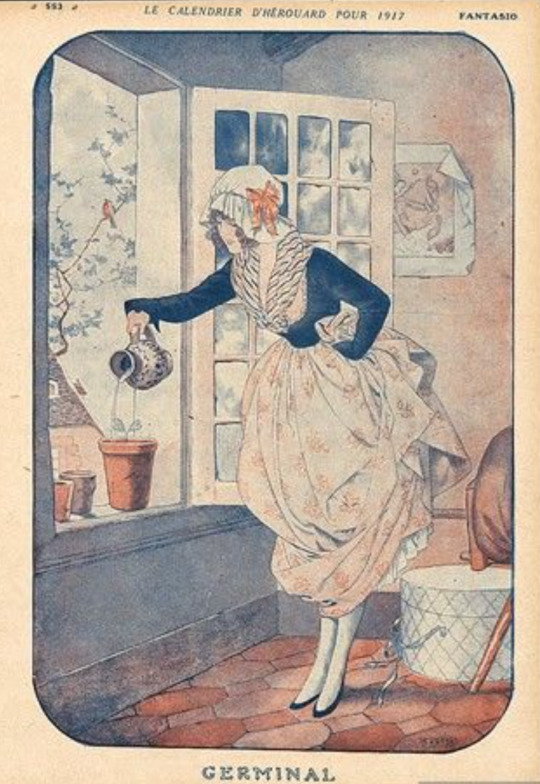
Germinal, Le Calendrier d'Hérouard pour Chéri Hérouard, 1917
#germinal#chéri hérouard#la vie parisienne#french republican calendar#french revolutionary calendar#spring#march
4 notes
·
View notes
Text
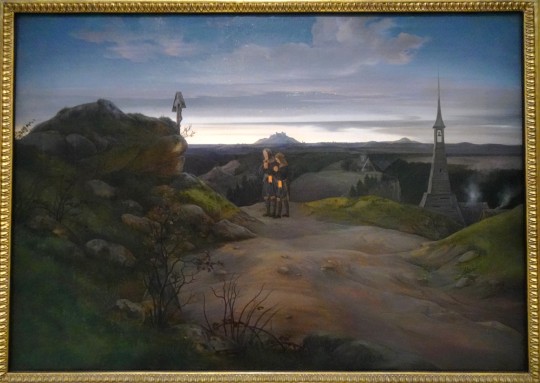
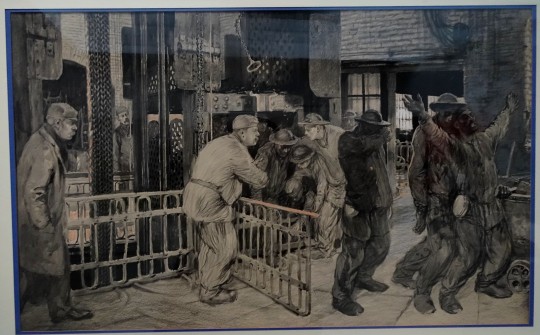
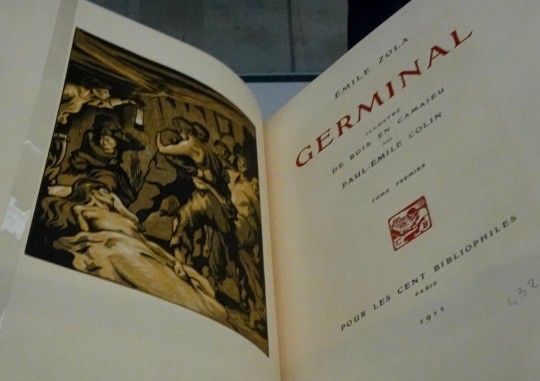
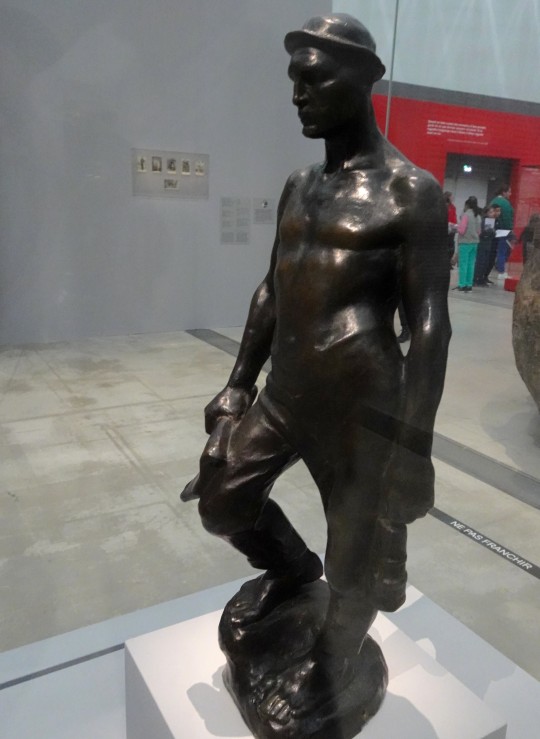

Louvre-Lens : il y a une expo : “Mondes souterrains : 20.000 Lieux sous la terre”. la suite et fin.
Ernst Ferdinand Oehme : paysage du Erzgebirge, deux mineurs en prière avant leur descente à la mine - 1826
François Kupka : "Remontée au jour des revenants de Courrières" - 1906 (survivants d'un des plus gros coups de grisou des mines françaises : 13 rescapés, plus de 1000 morts)
Paul-Emile Colin - illustration pour "Germinal" d'Emile Zola - 1912
Constantin Meunier : "Mineur à la hache" - 1901
Auguste Corriol - photos de mineurs vers 1900
#louvre-lens#expo#mondes souterrains#20.000 lieux sous la terre#mine#mineurs#oehme#ernst ferdinand oehme#erzgebirge#kupka#françois kupka#courrières#zola#émile zola#germinal#paul-émile colin#corriol#cart postale#auguste corriol#meunier#constantin meunier#anzin#carvin#lens#douai#escarpelle#coup de grisou
3 notes
·
View notes
Text
varolmak istemiyordum..
bram stoker - dracula
#bram stoker#dracula#kitap#edebiyat#blogger#felsefe#kitaplar#blog#kitap kurdu#şiir#lord byron#mary shelley#frankenstein#grotesque#the hunchback of notre dame#victor hugo#sefiller#germinal#gustave flaubert#madame bovary#emma bovary#hamlet#ophelia#genç werther'in acıları#kral lear#franz kafka#walter benjamin#charles bukowski#dövüş klübü#sokrates
7 notes
·
View notes
Text
Everyone tries to cancel Etienne Lantier for “not understanding principles of collective action” and “murder” as if he isn’t LITERALLY neurodivergent and a miner 🙄
8 notes
·
View notes
Text

Léon Choubrac - Advertisement for the serialization of "Germinal" by Emile Zola in the magazine "Gil Blas" on 25 November 1884.
Émile Édouard Charles Antoine Zola (; 2 April 1840 – 29 September 1902) was a French novelist, journalist, playwright, political activist, the best-known practitioner of the literary school of naturalism, and an important contributor to the development of theatrical naturalism. He was a major figure in the political liberalization of France and in the exoneration of the falsely accused and convicted army officer Alfred Dreyfus, which is encapsulated in his renowned newspaper opinion headlined J'Accuse…! Zola was nominated for the first and second Nobel Prize in Literature in 1901 and 1902.
Germinal is the thirteenth novel in Émile Zola's twenty-volume series Les Rougon-Macquart. Often considered Zola's masterpiece and one of the most significant novels in the French tradition, the novel – an uncompromisingly harsh and realistic story of a coalminers' strike in northern France in the 1860s – has been published and translated in over one hundred countries. It has also inspired five film adaptations and two television productions.
Germinal was written between April 1884 and January 1885. It was first serialized between November 1884 and February 1885 in the periodical Gil Blas, then in March 1885 published as a book.
The title refers to the name of a month of the French Republican Calendar, a spring month. Germen is a Latin word which means "seed"; the novel describes the hope for a better future that seeds amongst the miners. As the final lines of the novel read:
Des hommes poussaient, une armée noire, vengeresse, qui germait lentement dans les sillons, grandissant pour les récoltes du siècle futur, et dont la germination allait faire bientôt éclater la terre.
Men were springing forth, a black avenging army, germinating slowly in the furrows, growing towards the harvests of the next century, and their germination would soon overturn the earth. — 1885 translation[
Gil Blas (or Le Gil Blas) was a Parisian literary periodical named for Alain-René Lesage's novel Gil Blas. It was founded by the sculptor Augustin-Alexandre Dumont in November 1879.
Gil Blas serialized novels, such as Émile Zola's Germinal (1884) and L'Œuvre (1885), before they appeared in book form. Numerous Guy de Maupassant short stories debuted in Gil Blas. The journal was also known for its opinionated arts and theatre criticism. Contributors included René Blum, Alexandru Bogdan-Pitești, and Abel Hermant. Théophile Steinlen and Albert Guillaume provided illustrations.
Gil Blas was published regularly until 1914, when there was a short hiatus due to the outbreak of World War I. Afterwards, it was published intermittently until 1938.
In addition to Germinal, Gil Blas serialized the Zola novels L'Argent, Au Bonheur des Dames, and La Joie de vivre.
Gil Blas critic Louis Vauxcelles's phrase "Donatello chez les fauves" ("Donatello among the wild beasts") brought notoriety and attention to the works of Henri Matisse and Les Fauves exhibited at the Salon d'Automne of 1905. Vauxcelles' comment was printed on 17 October 1905[4] and passed into popular usage.
6 notes
·
View notes
Quote
Fino a tanto che avrete qualche cosa di vostro, e che il vostro livore contro il borghese non proverrà da altro che dal vostro rabbioso bisogno d'essere borghesi a vostra volta, non sarete degni mai della felicità.
Emile Zola - Germinal
27 notes
·
View notes
Text

Revolutionary honey
#Germinal#Louise Michel#French Revolution#Paris commune#Jules Vallès#Maxime Lisbonne#Eugène Varlin#Eugène Bizeau#off topic#Floréal#Prairial#Messidor#Thermidor
5 notes
·
View notes
Text
Ill with exhaustion and sick at heart, he wanted nothing more than to disappear into the void below ground.
Germinal, Émile Zola, 1885
23 notes
·
View notes
Text
Décadi 10 Germinal an CCXXXII
(Vendredi 29 mars 2024 / Friday, March 29th, 2024)
🇨🇵 Texte en français et en anglais / Text in French and English 🇬🇧/🇺🇲
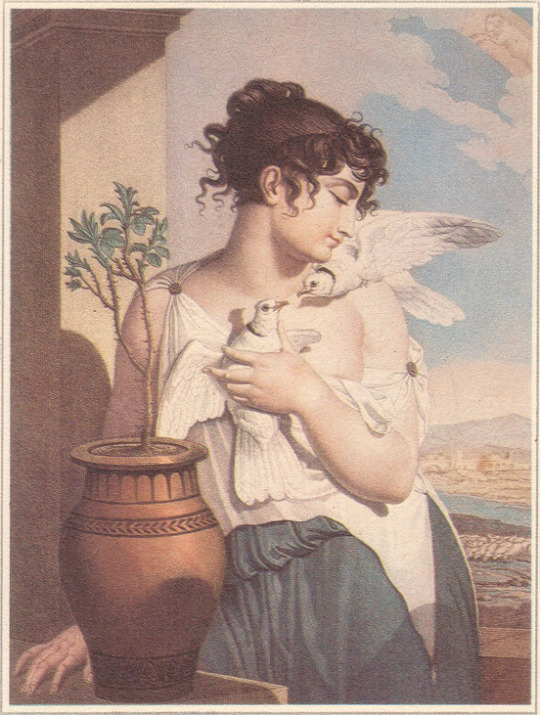

Le calendrier républicain, adopté pendant la Révolution française, était une tentative de rompre avec le passé monarchique et catholique en instaurant un système de mesure du temps basé sur les valeurs républicaines et agricoles. Chaque jour du calendrier républicain était dédié à une plante, un animal, un outil ou un événement symbolique, reflétant ainsi les idéaux de la Révolution.
Le mois de Germinal dans le calendrier républicain français représente le renouveau et la vitalité de la nature au printemps. Du 20 mars au 19 avril, Germinal est le mois où la terre se réveille de son sommeil hivernal, où les bourgeons éclosent et où les premières fleurs colorent les paysages. Il incarne le début de la saison des semailles et le travail de la terre, symbolisant ainsi l'espoir et la promesse d'une nouvelle récolte. Germinal rappelle également les idéaux républicains de liberté, d'égalité et de fraternité, en invitant chacun à contribuer à l'essor de la société et à cultiver un avenir meilleur.
La journée du 10 Germinal dans le calendrier républicain français était dédiée au "couvoir", un meuble ancien utilisé pour l'incubation des œufs. Cette journée était une occasion pour les républicains français de célébrer et de reconnaître l'importance de l'agriculture et de l'élevage dans la société.
Le couvoir était un élément essentiel de l'économie agricole, permettant aux agriculteurs d'augmenter leur production en élevant des poussins à partir d'œufs fécondés. C'était un processus méticuleux qui exigeait une surveillance constante de la température et de l'humidité pour assurer le bon développement des embryons.
Cette journée était l'occasion de sensibiliser à l'importance de protéger la biodiversité et de préserver les races de volailles locales.
Pour les écoliers et les étudiants, la journée du 10 Germinal était l'occasion d'apprendre sur l'histoire de l'agriculture et de l'élevage en France, ainsi que sur l'évolution des techniques et des outils utilisés dans ces domaines. C'était également une opportunité d'encourager les jeunes à s'impliquer dans l'agriculture et l'élevage, en tant que moyen de préserver notre patrimoine culturel et de contribuer à la sécurité alimentaire.
En résumé, la journée du 10 Germinal était une occasion de célébrer et de valoriser l'importance de l'agriculture et de l'élevage, ainsi que de sensibiliser à la préservation des traditions agricoles et artisanales françaises.
***
The Republican calendar, adopted during the French Revolution, was an attempt to break away from the monarchic and Catholic past by establishing a system of time measurement based on republican and agricultural values. Each day of the Republican calendar was dedicated to a plant, an animal, a tool, or a symbolic event, thus reflecting the ideals of the Revolution.
The month of Germinal in the French Republican calendar represents the renewal and vitality of nature in spring. From March 20 to April 19, Germinal is the month when the earth awakens from its winter slumber, when buds burst open, and the first flowers color the landscapes. It embodies the beginning of the sowing season and the work of the land, symbolizing hope and the promise of a new harvest. Germinal also recalls the republican ideals of liberty, equality, and fraternity, inviting everyone to contribute to the advancement of society and cultivate a better future.
The 10th of Germinal in the French Republican calendar was dedicated to the "couvoir," an ancient piece of furniture used for egg incubation. This day was an opportunity for the French republicans to celebrate and recognize the importance of agriculture and livestock in society.
The "couvoir" was an essential element of agricultural economy, allowing farmers to increase their production by raising chicks from fertilized eggs. It was a meticulous process that required constant monitoring of temperature and humidity to ensure the proper development of embryos.
This day provided an opportunity to raise awareness about the importance of protecting biodiversity and preserving local poultry breeds.
For schoolchildren and students, the 10th of Germinal was a chance to learn about the history of agriculture and livestock farming in France, as well as the evolution of techniques and tools used in these fields. It was also an opportunity to encourage young people to get involved in agriculture and livestock farming as a means of preserving our cultural heritage and contributing to food security.
In summary, the 10th of Germinal was an occasion to celebrate and value the importance of agriculture and livestock farming, as well as to raise awareness about preserving French agricultural and artisanal traditions.
#calendrier#calendrier républicain#calendrier républicain français#calendrier révolutionnaire#calendrier révolutionnaire français#france#français#révolution#french revolution#Germinal#couvoir#oeufs#agriculture#nature#révolution française#french#french calendar#francais#revolutionary
8 notes
·
View notes
Text
I love reading books but i feel like im trapped with the one that im reading rn. I hate reading unnecessary details that makes me so bored and im reading germinal by emile Zola and THAT BOOK IS SO DETAILED ITS NOT EVEN THAT LONG BUT GOD I CANT READ IT IM HARDLY AT PAGE 100 AND I HAVE 400 TO GO IM SO BOREEEDD AND I CANT EVEN COMPLAIN ABOUT THAT BOOK IN HOME BC ITS MY DAD'S FAVORITE BOOK AFTER LES MISERABLES. I wanna read crime and punishment after this one
#currently reading#germinal#i really don't know how to use hashtags#les miserables#crime and punishment
4 notes
·
View notes